”If you can look into the seeds of time,
and say which grain will grow and which will not, speak then to me“
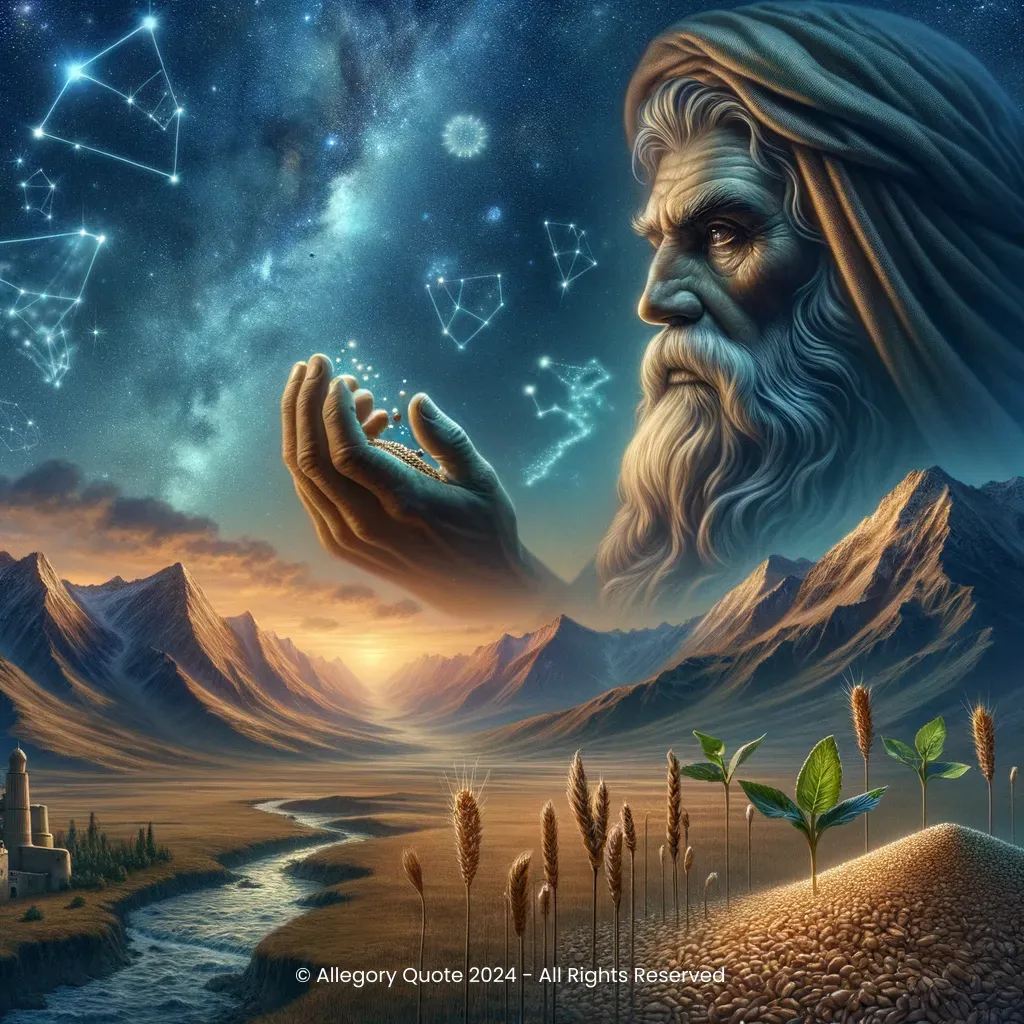
0
0
0
0
- Meaning
- This phrase touches upon the themes of fate and prophecy, central to "Macbeth." Banquo is addressing the witches, seeking to know his future. The metaphor of "seeds of time" implies the potential future events (seeds) that may or may not come to fruition (grow). The curiosity and uncertainty about the consequences of present actions are key elements here, highlighting human desire to influence or at least understand one's destiny.
- Allegory
- The elements in the image represent various aspects of the phrase. The ancient, wise figure embodies the seeker of knowledge, akin to Banquo. The seeds are metaphors for potential futures, while the saplings and grains at different stages symbolize the uncertainties and outcomes of those futures. The timeless landscapes emphasize the vastness of time. Finally, the starry sky with morphing constellations highlights the unpredictable and ever-changing nature of destiny, while the figure’s serene expression reflects the contemplation and humility inherent in the human quest to understand and perhaps influence the future.
- Applicability
- This phrase underscores the universal desire to predict and control the future, pertinent in both personal and professional contexts. Whether one is making decisions about career, relationships, or investments, the uncertainty and need for foresight that Banquo expresses are relatable. The idea of understanding which "seeds" will succeed can inspire careful planning and risk management.
- Impact
- Shakespeare's works, including "Macbeth," have had a profound impact on literature, theater, and beyond. The exploration of fate and human nature in this phrase has inspired countless interpretations and discussions in literature, drama, and psychology. It remains a powerful example of how literature can encapsulate complex human experiences.
- Historical Context
- Written around 1606 during the Jacobean era in England, "Macbeth" explores themes of ambition, power, and fate. Shakespeare's work often reflects the tumultuous socio-political climate of his time, including the deep superstition surrounding witchcraft.
- Criticisms
- One criticism hinges on the deterministic view implied by seeking knowledge of the future. Some argue that it negates human free will and the capacity for change and growth. Others debate the ethical implications of possessing such knowledge — if one could predict the future, should they act to change it?
- Variations
- This phrase has been interpreted variously across cultures. In Western literature, it aligns with themes of destiny and foreknowledge. In Eastern philosophies like Buddhism and Hinduism, there's a focus on karma — actions in the past affecting present outcomes. In African cultures, proverbs often highlight communal forethought and wisdom, aligning the growth of seeds with community and heritage.
-

The empty vessel makes the loudest sound.
-

I will wear my heart upon my sleeve for daws to peck at.
-
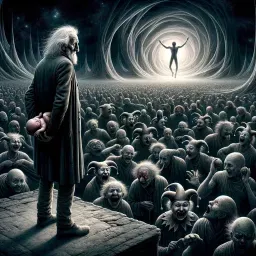
When we are born, we cry that we are come to this great stage of fools.
-

I am one who loved not wisely but too well.
-
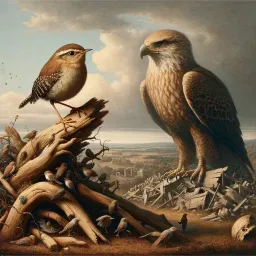
The world is grown so bad, that wrens make prey where eagles dare not perch.
-

Give me my robe, put on my crown; I have immortal longings in me.
-

I bear a charmed life.
-

Uneasy lies the head that wears a crown.
-

A friend should bear his friend's infirmities, but Brutus makes mine greater than they are.
-

The devil can cite Scripture for his purpose.
-
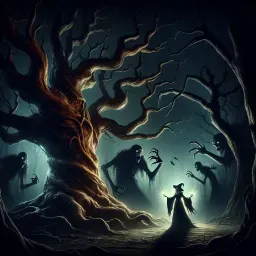
By the pricking of my thumbs, something wicked this way comes.
-
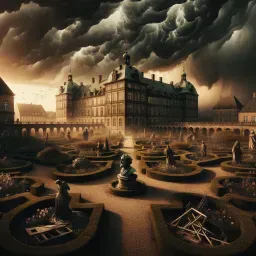
Something is rotten in the state of Denmark.
No Comments